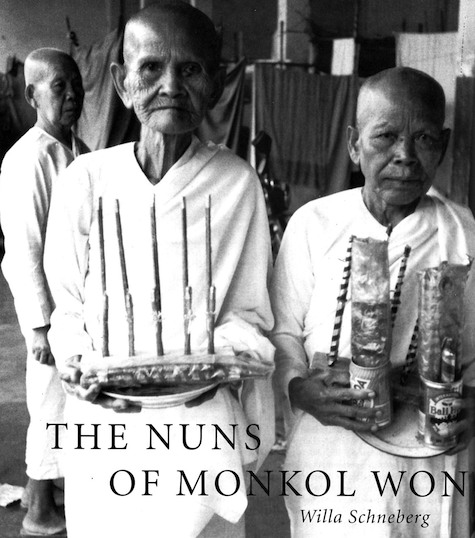At the time these photos were taken, the nuns and monks of Monkol Won Pagoda in Phnom Penh, Cambodia, were cautiously optimistic that the United Nations Transitional Authority in Cambodia might bring democracy to their country. For a number of months in 1992, the nuns allowed us, U.N. volunteers, to set up registration sites in their pagoda for the first “free and fair” election in Cambodia since the era of French colonization, which ended in 1953. Their optimism was rewarded. In May 1993, ninety percent of those who registered cast their votes in the U.N.-sponsored election. Hun Sen, the leader of the Vietnamese-installed government, and Prince Norodom Ranariddh, King Sihanouk’s son, would become co-prime ministers.
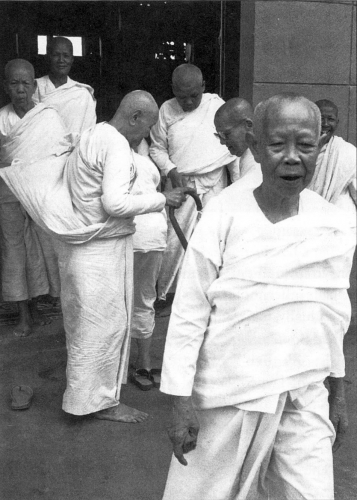
Many of the nuns’ “homes” (the poorer nuns sleep on mats, while those with family have bamboo huts financed by their relatives) were just a stone’s throw from the throngs of Khmers lining up to register to vote. Monastics were among those specially targeted by the Khmer Rouge, and all the monks and nuns living in Monkol Won before the “Pol Pot time” were killed, except one. The families of almost all the nuns living there in 1992 died during the Pol Pot time. No one is certain when ground was broken to begin building the pagoda, but Prince Sihanouk’s mother gave her support to begin the project before 1970, when Lon Nol ousted Sihanouk. Work was halted during the Lon Nol regime, which in turn was overthrown by the Khmer Rouge in 1975. Construction did not resume until July 1989. After the Vietnamese invaded Cambodia and drove out the Khmer Rouge in 1979, religious freedom slowly took hold once again. Since the 1993 elections, Buddhism has flourished, monasteries have proliferated, and the building and restoration of temples continues.
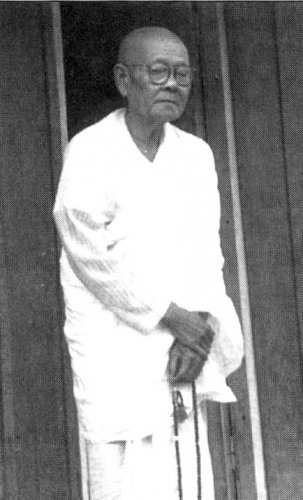

In the rainy season, traditionally a time for prayer and meditation, ninety-two nuns live in Monkol Won. In the dry season, when they are freer to travel, sixty-two nuns reside there. Nine monks are in residence in the pagoda all year round. Thommayut, the order of Theravada Buddhism practiced at Monkol Won, exists only in urban areas of Cambodia. The sect originated in the 1820s under Mongkut, a monk who later became king of Thailand. It is a reformist, “orthodox” school of Theravada with strict observance of monastic precepts and rigorous meditation practice. Practitioners believe nirvana is attainable in the present.
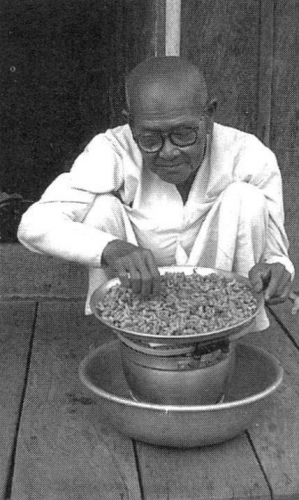

The nuns say that when the Buddha was still alive, women were as learned as or more learned than men and could become ordained monastics. For at least 500 years after his death, nuns were still formally ordained. The nuns of Monkol Won do not wish to become monks themselves, explaining that it requires too much study. They accept that they could never be monks because, as they put it, as child-bearers, they are “impure.” Most monks begin to practice in their early teens and most nuns only after their children are grown. All the nuns are past midlife and many are in their seventies and eighties (except one, who is nineteen and came to live at the pagoda after suffering physical abuse at home). They all commit to a life of celibacy, simplicity, lack of adornment, and unfailing honesty. They do not consume alcohol or kill animals and perform only “good action,” so that they can achieve bon (Khmer for “merit”) in the lives to come.
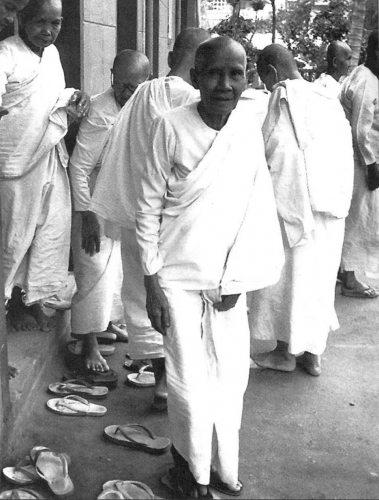
One of the major paths to achieving bon is through dharma practice. The nuns awaken at 4 a.m. and chant and meditate as a group at least three times a day. They all participate in walking meditation in the late afternoon, and in the evening they chant individually, many until 9 or 10 p.m. Since the monks of the Monkol Won pagoda do not use begging bowls, all their alms are received through the charity of laypeople who come to the pagoda. The head monk distributes funds to the monks and nuns depending on the amount collected and individual needs.

The nuns say they have forgotten their earlier lives. They have left the feeding of grandchildren to their children. Now they want only to practice and achieve bon in future lives.
Thank you for subscribing to Tricycle! As a nonprofit, we depend on readers like you to keep Buddhist teachings and practices widely available.
